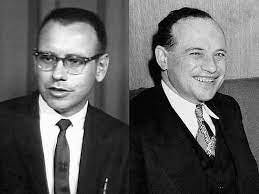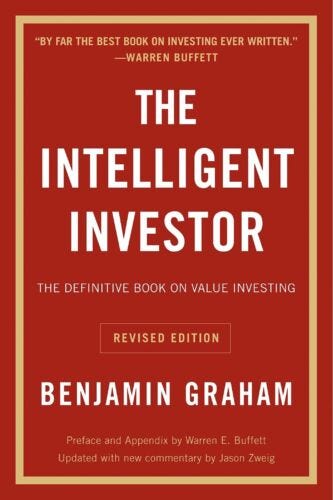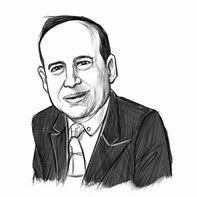University of Pennsylvania
Warren Buffett graduated from high school in 1947 and began college at the University of Pennsylvania in September at the age of 17.
Buffett would spend his weekends attending beer parties with his fraternity, Alpha Sigma. While the monastic frat house was flooded with women and most of the guys had their arms around a date, Warren would sit on the couch and entertain the party with a little dissertation on the gold standard. Let’s just say Warren wasn’t compounding his interest those days.
University of Nebraska
Buffett was not one to waste his time doing something he disliked; that summer, he packed his bags and left. He was unhappy with the school's curriculum and teaching methods. One of his frat brothers said, "Warren concluded that there wasn't anything Wharton could teach him, and he was right." After returning home to Nebraska, Warren took a job at JCPenney, where he was offered a full-time position after graduation. I wouldn't have written this blog if Buffett had accepted the position.
Warren graduated from the University of Nebraska-Lincoln in 1950 with a degree in business administration. Warren decided that he would be a millionaire at the age of thirty-five with no further education.
"One day, I read in Daily Nebraska a little item that said, "The John E. Miller will be awarded today. Applicants should go to room 300 in the business administration room. And it provided $500 to attend the school of your choice. I was the only one twho showed up.”
Buffett decided to attend Harvard Business School with this newfound money but was denied its application. (This is why I never chose to attend Harvard, how could they do my boy like that?)
Columbia
As luck may have it, Buffett had just finished reading The Intelligent Investor, published by Benjamin Graham in 1949, and realized Ben Graham was teaching Finance at Columbia. The Intelligent Investor was the layman's version of Security Analysis, the seminal text on investing written by Benjamin Graham and David Dodd in 1949 amid the Great Depression. David Dodd was the associate dean of the Graduate School of Business and head of the Department of Finance.
"I wrote in August, about a month before school started, way past when we were supposed to do it. Who knows what I wrote? I probably wrote that I found this catalog at the University of Omaha, and it said that you and Ben Graham taught, whereas I thought you guys were on Mount Olympus someplace smiling down on the rest of us."
On the first day of Graham's Class in January 1951, the greatest & youngest student, Benny G would ever have, walked in. When Graham asked a question, Buffett was the first to have his hand up and start taking, and the classroom soon became an audience to this duet. According to a former student, the chemistry was evident to everyone else in the class.
Buffett took three principles from Graham's class.
A stock is a right to own a little piece of paper: A stock is worth a certain fraction of what you would be willing to pay for the whole business.
Use a Margin of Safety: Investing is built on estimates and uncertainty. A wide margin of safety ensures that the effect of good decisions are not wiped out by errors. The way to advance, above all, is by not retreating.
Mr. Market is your servant, not your master. Graham postulated a moody character called Mr. Market, who offers to buy and sell stocks every day, often at prices that don't make sense. Mr. Market's moods should not influence your view of price. However, from time to time, he does offer the chance to buy low and sell high.
Benjamin Graham
Mr. Graham, or as his mother would call him, Benny, is considered by many the dean of Wall Street, the father of value investing, and the intelligent investor.
Benjamin Grossbaum was born on May 9th, 1884, at 87 Aberdeen Road in London, England. Unlike the plain-spoken Buffett, Ben was a man of the arts. He read Victor Hugo in French, Goeth in German, Homer in Greek, and Virgil in Lantin. A self-described loner whose real friends were the imminent dead such as Gibbon, Milton, Lessing, Shakespeare, Dickens, and Newton. His family moved to New York sometime in 1885, traveling second class into New York without any required paperwork or formalities. His father ran the American division of the family business, bringing a respectable income to the family. However, when Ben was nine years old, his father passed away, leaving three sons and a wife with relatively little savings and zero income.
Unlike Buffett, Grahma's upbringing was less prosperous. His mom lost her entire savings during the market panic of 1907, and they spent many years bouncing around from house to house with very little money or income. Graham's only chance of attending Columbia was winning 1 of 20 Pulitzer scholarships awarded to students from public high schools. Again, unlike Buffett, who only had to show up to a classroom, Graham ultimately had to suffer through various interviews to be denied and resorted to attending City College of New York (CCNY).
"I was quite unhappy at CCNY. In my morbid state, everything about the place was unappetizing and unsatisfactory. I left my locker open one day, and two books disappeared from it. They had to be paid for, I was dejected and disgusted, and I had no source of pocket money. In my desperation, I made an extreme decision. I would give up college and get a job."
Graham, therefore, got a job assembling push buttons for electric doorbells at the L.J. Leffler Telephone Company. Graham wrote to Columbia that fall, asking if he could apply for a Scholarship to begin in the spring. They informed him that no scholarships were given in the middle of the year and that he should write again in the spring, starting in September 1911. However, a few days later, the dean of Columbia College asked to meet with him in his office. Graham was told that he had actually won a scholarship the previous year, but due to an error at the registrar’s office, his name was confused with his cousin Louis Grossbaum, who had previously won the Pulitzer Scholarship. They couldn't give the scholarship to someone who had previously won it. Benny Graham finally started at Columbia College as an Alumni Scholar in September 1911. He ultimately graduated in 1914 with a degree in mathematics and held several jobs in between.
Keep reading with a 7-day free trial
Subscribe to Becoming Berkshire to keep reading this post and get 7 days of free access to the full post archives.






